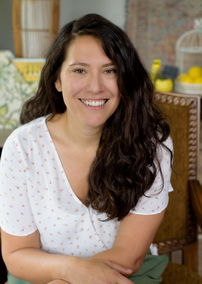|
2/1/2024 0 Comments Sleep HygieneFebruary 2024
During the winter months, it is normal to feel less energized. Your sun exposure is reduced significantly and the cold weather creates a sense of hibernation in the environment. Being that we are naturally slowing down, I thought it could be advantageous to take some time to talk about sleep hygiene. Before we get into sleep hygiene, I think it’s important to acknowledge that sleep plays a large role in our ability to function as animals. In regards to our mental health, if we are not getting enough sleep it can make managing our thoughts and emotions much more challenging. But what exactly does healthy sleep look like? When thinking of the science behind sleep, it's important to know about our circadian rhythms. Biologically, our brain has a 24 hour clock built into it which has enabled us to evolve to optimize energy absorption and use. The brain picks up on the light cues from our environment which then helps us determine when we should go to sleep. Essentially, farm and hunt when the sun is out and sleep when it's not. Due to artificial light, especially blue light, our bodies can get confused as to when we should be slowing down and going to sleep. What we can try to reestablish is our body's understanding of the world around it. A few things one can do are, turn down the lights in whatever room you are in at the same time every night, remove blue light emitting technologies at least an hour before you want to be asleep and go to sleep and wake up around the same times, yes, even on the weekends. Another thing to consider is what our evenings look like in general. Are you completing a bunch of tasks when you could be slowing down mentally and physically? Do you stay up late watching anxiety creating TV shows? As I usually do, I invite you to think about what your evenings look like, especially your bedtime routine. Is there a pattern you can see in which you are inviting sleep into your night or does the word chaos come to mind? By creating a bedtime routine you're letting your physical being know that it is time to slowly turn off. A routine can also help create a sense of safety. Our biology wants to survive and if it does not feel safe, it will have a hard time falling and staying asleep. Using a routine can help your body see that things are safe in our environment and that we can completely rest. When thinking of a routine, see if you can add a scent or sound to the experience. We want to invite sleep into our night and by having a smell or song anchor us into that part of a day, we may find that our bodies tend to relax quicker, even when life feels chaotic. Some other things to consider are:
Until next time, Sofia Neves-Gilcher, MA, LPC Be Well Psychotherapy, LLC
0 Comments
Leave a Reply. |
AuthorSofia Neves-Gilcher Archives
February 2024
Categories |
| August 2021 Newsletter: Technology | |
| File Size: | 3710 kb |
| File Type: | |
| June 2021 Newsletter: Pandemic Anxiety | |
| File Size: | 3668 kb |
| File Type: | |
| May 2021 Newsletter: Vulnerability | |
| File Size: | 3670 kb |
| File Type: | |
| March 2021 Newsletter | |
| File Size: | 4824 kb |
| File Type: | |
Proudly powered by Weebly
